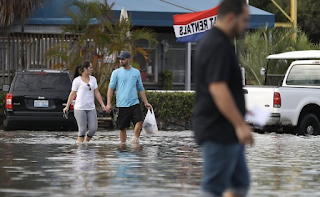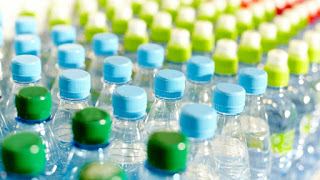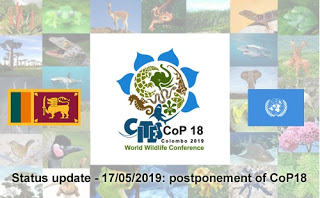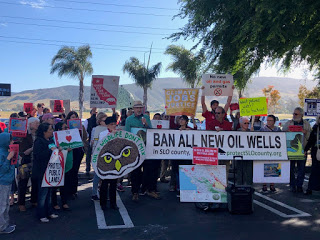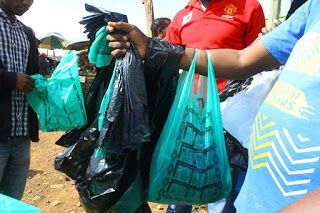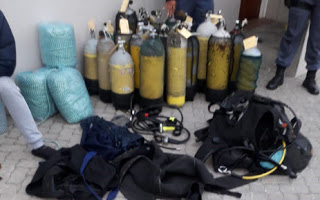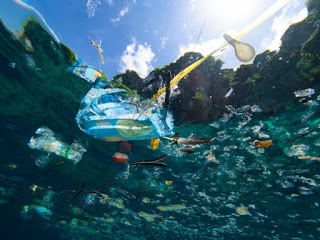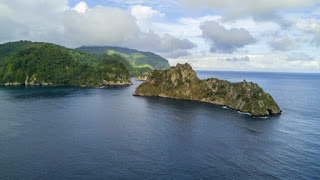Africa leads the world in plastic bans, Coastal cities that may drown in 80 years, Single-use plastics to be banned in EU by 2021, CITES CoP18 Update, Vancouver supports shark fin ban, Mediterranean Garbage Patch and more…
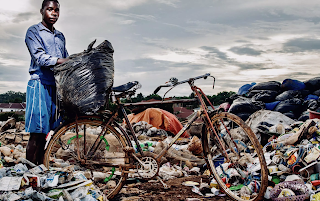 As of June 1, travelers to Tanzania will have to pack very carefully. The country announced the implementation of the second phase of its plastic bag ban on May 16. Visitors are advised to avoid packing or carrying any plastic bags as they’ll have to leave these at a designated desk in the airport. The first phase of the country’s anti-plastic initiative began in 2017 to “protect the youth and environment,” with an initial ban on the manufacture of plastic bags and in-country distribution.
As of June 1, travelers to Tanzania will have to pack very carefully. The country announced the implementation of the second phase of its plastic bag ban on May 16. Visitors are advised to avoid packing or carrying any plastic bags as they’ll have to leave these at a designated desk in the airport. The first phase of the country’s anti-plastic initiative began in 2017 to “protect the youth and environment,” with an initial ban on the manufacture of plastic bags and in-country distribution.
2. Miami, Other Coastal Cities May Drown in 80 Years
Today’s children could see Miami and the Earth’s other low-lying cities swallowed by the rising ocean within 80 years if the fossil fuel pollution causing climate change continues unabated. That’s the conclusion of a study published May 20 in the Proceedings of the National Academy of Sciences that says rising seas could lead to the possible displacement of 187 million people as land totaling an area larger than Alaska is subsumed by the sea—a catastrophic climate scenario for which coastal communities must plan.
A ban on single-use plastics will be in place by 2021, the European Council has agreed.
The council said it would ban plastic plates, cutlery, straws, balloon sticks and cotton buds in the next two years. The directive was proposed by the European Commission a year ago after documentaries such as Blue Planet II raised awareness of the damage caused to marine environments. It was overwhelmingly approved by the European parliament in March.
OFFICIAL RELEASE – I wish to inform Parties and interested stakeholders about the latest developments for CITES CoP18 that was scheduled to be held from 23 May to 3 June 2019 in Colombo, Sri Lanka, and the postponement as announced on 26 April via Notification to the Parties No. 2019/025.The Government of Sri Lanka has proposed alternative dates for CoP18 in Colombo of 1-13 September 2019. In line with United Nations practices, the Secretariat is, therefore, working with the United Nations Department of Safety and Security (UNDSS) to assess the security situation on the ground with Sri Lankan colleagues, UNDSS officials and the United Nations Resident Coordinator for the country. We expect the assessment at the end of May 2019.
PLEASE NOTE: Out of concern for security some stakeholders are suggesting that the proceedings not be held in Sri Lanka, but that consideration be given to a Geneva meeting, or a return to South Africa, Thailand or Qatar.
———————————————-
Dozens rallied against the Trump Administration’s plan to open more than a million acres for oil drilling and fracking on the Central Coast. The meeting held by the Bureau of Land Management Wednesday night focused on the environmental impacts of fracking outlined in the Environmental Impact Study (EIS) rather than the potential of opening the land. However, local environmentalists and leaders made their strong opposition to oil drilling or fracking clear. One woman has concerns the place she calls home could be exploited.
6. ‘Wasteful, Inhumane’: Vancouver Backs Bill that would Ban Shark Fin Imports
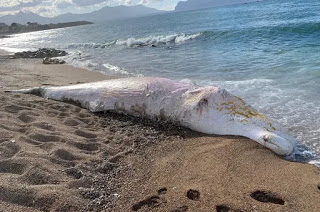
It’s a sad but familiar story: A young whale has been found dead, washed ashore with a belly full of plastic. Greenpeace in Italy shared graphic pictures of a beached sperm whale carcass found on the coast of Sicilia on social media over the weekend. When the whale was cut open, multiple bits of plastic waste were found clogging the young animal’s stomach. It was unclear if the plastic was the cause of death, but it couldn’t be ruled out, said Giorgia Monti, Greenpeace Italia’s campaign manager.
8. Legal Update for Plastic Bags Prohibition in Tanzania
The much-awaited Regulations banning out right plastic bags have been issued on 17 May 2019, vide GN No 394 of 2019. The Environmental Management (Prohibition of Plastic Carrier Bags) Regulations, 2019 (Regulations) are meant to impose a total ban on the import, export, manufacturing, sale, and use of plastic carrier bags regardless of their thickness. Plastic carrier bags has a wide definition in the Regulations, as a bag made of plastic film, with or without handles, or gussets and to which its layer is in any thickness. The Regulations also categorically state that no person shall sell or offer for sale beverages or other commodities wrapped in plastics* unless the nature of such commodities require wrappings by plastics, and restricts any licensing authority from issuing any licences after the Regulations come into force.
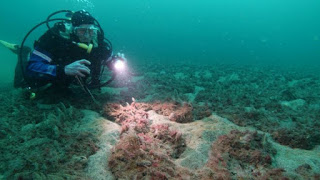 A fragile flame shell reef which was severely damaged by scallop dredging on Scotland’s northwest coast has been granted permanent protection. Ministers had issued a temporary order banning mobile fishing on Loch Carron in Wester Ross after the 2017 incident. Divers who visited the reef, which is a nursery ground for scallops, found the area had been “intensively” dredged. But it now officially has Marine Protected Area (MPA) status which safeguards 23 sq km of the sea loch.
A fragile flame shell reef which was severely damaged by scallop dredging on Scotland’s northwest coast has been granted permanent protection. Ministers had issued a temporary order banning mobile fishing on Loch Carron in Wester Ross after the 2017 incident. Divers who visited the reef, which is a nursery ground for scallops, found the area had been “intensively” dredged. But it now officially has Marine Protected Area (MPA) status which safeguards 23 sq km of the sea loch.

The backlash against single-use plastic has engulfed straws, bags and takeout containers, but the plastics industry is fighting back, arguing alternatives can be worse for the environment and disruptive for businesses. Trade groups are spending more on lobbying, reaching out to consumers and promoting recycling amid mounting regulation. Their message: Plastic bans target only waste and don’t take account of environmental negatives associated with raw materials and the production of alternatives.
CAPE TOWN – Police investigating an abalone poaching operation in Hawston, near Hermanus, detained three people for questioning on Monday in connection with three separate murders in Hermanus in 2016, 2018 and earlier this year. Police also seized more than R600,000 in cash and diving equipment. Ten properties were searched and more than 30 people were questioned.
———————————————–
12. Mediterranean Garbage Patch: Huge New ‘Island’ New Plastic Gyre Identified
The Mediterranean Sea has been known for its pristine beaches, sparkling waters and picture-perfect islands. But humanity’s voracious appetite for plastic appears to have ruined this image. Researchers have spotted a floating “island” of plastic waste, measuring several dozen miles long in between the French island of Corsica and the Italian island of Elba—famed for once hosting the emperor Napoleon while he was in exile. The plastic “island” has formed as a result of currents that carry the waste north before depositing it between Corsica and Elba, Agence France-Presse reported.
Mesophotic coral ecosystems (MCEs), at ocean depths between 40 and 150 m, have been found throughout the tropics but are different in the Eastern Tropical Pacific (ETP). This observation is based on submersible dives that have explored several ETP mesophotic areas. The ETP is characterized by a shallow thermocline (approximately 50 m depth), reduction in light availability at deeper depths due to the accumulation of particulate matter at the thermocline, cold temperatures, low oxygen concentrations, and low aragonite saturation state (Ωarag) that may explain the absence of zoothanthellate corals below 40 m. Isla del Coco is located 500 km off the Pacific coast of Costa Rica. The MCEs of this island have been explored using the DeepSee submersible. There is a sharp change in benthic fauna, in both soft and hard bottoms, at approximately 50 m depth.
Sea Save Foundation is committed to raising awareness of marine conservation. The Week in Review is a team effort produced by the Sea Save staff to provide a weekly summary of the latest in marine research, policy, and news

